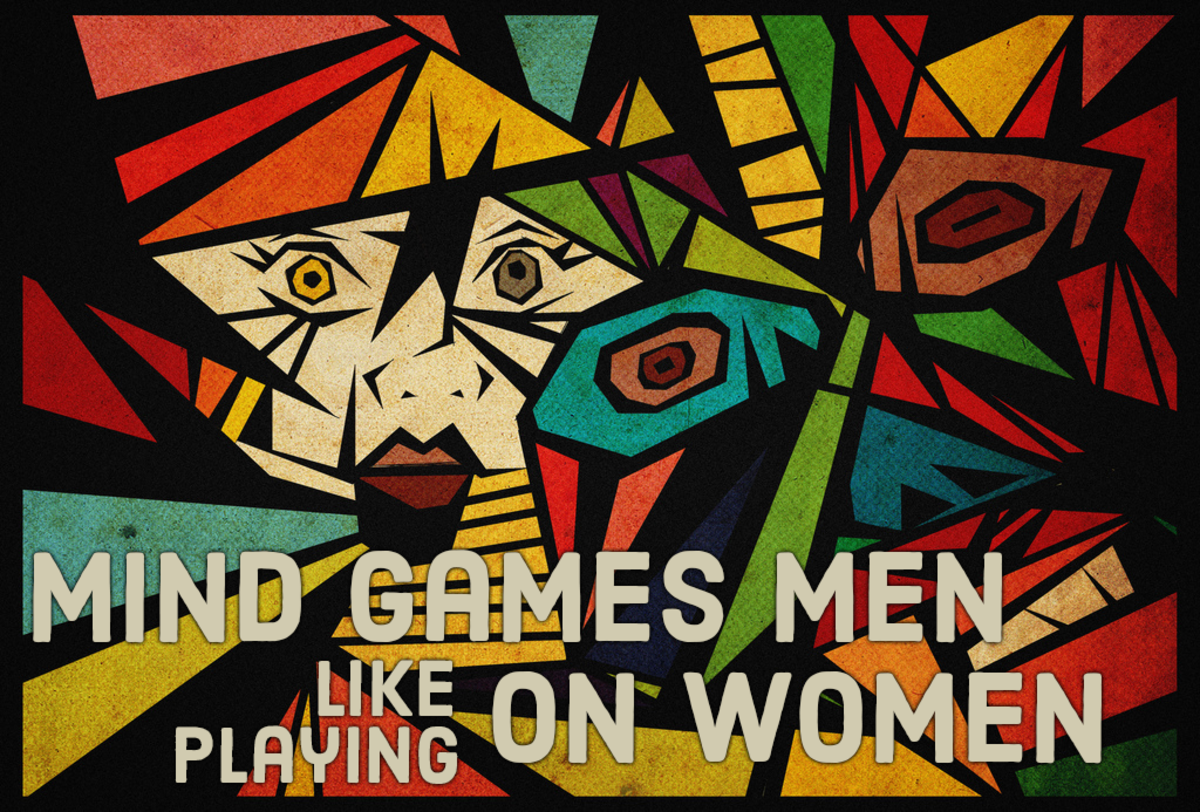Sentence Sermons (Christian Inspiration) #51 --- Prejudice
Quotations on Prejudice (Set No. 1)
Prejudice literally means judging beforehand, or coming to a conclusion before the evidence is all in. It thrives on ignorance, especially voluntary ignorance. It thwarts justice and renders mercy abortive. It is probably the greatest hindrance to the progress of democracy. True Christianity is never found where prejudice rules men's hearts. The antithesis of prejudice is openmindedness.
—Joseph O. Haymes, Hereford Brand, Hereford, Texas, Sept. 10, 1925.
A prejudiced mind is one that truth cannot penetrate. Prejudice is condemnation without investigation. Prejudice is a great time saver; it enables us to form convictions without bothering to get the facts.
—David Holland, Beauregard Daily News, DeRidder, La., July 28, 1989.
Prejudice means: "prejudgment"–forming an opinion or embracing an attitude before the facts are all in. Prejudice means making up your mind beforehand about a person or situation. Prejudice is born of attitude, nourished by misinformation, and issues in stereotype--the root sin. ...
The causes are myriad. We are prejudiced because we are naturally centered in our own concerns, limited by our ignorance, bound by our environment, mindful of our traditions, lustful for wealth and power, and gripped by our own irrational superstitions. In Biblical language this means that we are prejudiced because we are sinners against God and against our fellowmen.
—W. Randall Lolley, The Southern Baptist Educator, Nashville, Tenn., July-August 1975.
"In honor preferring one another." (Romans 12:10.)
You may be prejudiced either for or against a thing. The object may be either good or bad–your attitude commendable or otherwise.
Sometimes prejudice is a respectable word for stubbornness. It is that prejudice which exists because of temperament, which is strengthened by past traditions and the disposition of which is on general principles not to accept what others advance, announce or support, that is harmful.
Nothing dwarfs one's influence–blinds one's vision–like this. It refuses to recognize real worth because it has appeared suddenly on the scenes of action, declines to ... methods because they have not been worked in other ways, is unwilling to accept new statements of truth because wedded to old vocabulary.
It is belittling to one's self and unfair to others. When it is harmful it is often caused by ignorance, stupidity, selfishness or downright unkindness.
Why not try an old rule which is taught in the Bible, illustrated in the life of Jesus, and is, therefore, ever new. "In honor preferring one another."
Be generous with plans and methods of other men until they fail.
Reserve your judgment until the thing against which you are prejudiced has had time to bear fruit.
Be on the lookout for points of strength and not of weakness.
Search the Scriptures, and in the presence of the Spirit there taught unfair prejudice cannot live.
—J. Wilbur Chapman, The Atlanta Constitution, Atlanta, Ga., March 6, 1915.
Prejudice is like indigestion; it prevents its possessor from assimilating anything. People who say that they hate [certain people] may walk in respectable society, but for all that they are lepers. They are breeding places for the world’s most deadly moral pestilence.
—Harry Emerson Fosdick, New York Times, New York, N.Y., June 6, 1927.
Freedom from prejudice marked the mind of Christ. Honesty of mind is a high but rare quality.
We are to sit down before a fact as a little child and strip our minds of prejudice. ...
There is prejudice in human relationships.
Men hold to a personal prejudice with no sort of foundation for it. You may hold prejudice against persons who never thought you a wrong, who never did you a wrong, and fail to recognize a foul and wicked injustice. ...
There is the bias of enmity which prevents you doing an enemy justice. You question his every motive. You may be so prejudiced in favor of those whom you love that you cannot do justice. If your own little darling gets into trouble at school you say it is the meanness of the teacher. If somebody else's darling gets into trouble you say it the wise discipline of the teacher.
—William P. King, The Atlanta Constitution, Atlanta, Ga., Aug. 21, 1927.
Bigotry is the obstinate, unreasonable and intolerant attachment to some creed, opinion, or practice, which is manifest also in an intolerant attitude toward the opinions and practices of others. ... It is the essence of selfishness. It is the most prolific source of strife. ...
A bigot will never see any good in anything except in that which he has. ...
Bigotry is blindfolded egotism on a drunk. Wilfully incapable of enlightenment, the bigot presents a hard problem for solution. Like his prototype the oyster he resents any attempt to open his head.
—H.W. Knickerbocker, Houston Post-Dispatch, Houston, Texas, Jan. 23, 1928.
Prejudice judges the case before the evidence has been presented. It is therefore forced to reach its decision in the light of suppositions and inferences and personal preferences.
Prejudice beclouds the judgment, even when the witnesses are heard. Having already formed its decision, it does not wish to be troubled with considerations that might perplex or confuse.
Prejudice is not only born of ignorance, but it is a most efficient jailer to keep the mind in ignorance. When prejudice stands at the portals no new or unfamiliar truth can enter. ...
Prejudice is compounded in equal parts of ignorance and conceit. Ignorance deprives it of the means to judge correctly, and conceit not only prevents it from seeking the needed knowledge, but would keep it from using the knowledge even if it were at hand. ...
Prejudice is the mark of a small, limited, self-complacent mind. In its estimate, whatever is new, strange or different is, therefore, necessarily bad. Such a mind is wholly unable to see that truth and honor and nobility can wear only other livery than that in which one has been accustomed to seeing them arrayed.
—Bryan W. Collier, Christian Index, Atlanta, Ga., Jan. 23, 1919.
Paul asks the Thessalonians to pray for him that he "may be delivered from unreasonable and evil men" (2 Thessalonians 3:2), having just asked that they may pray "that the word of the Lord may run and be glorified." It is evident that one hindrance to the progress of the word of God is the opposition of "unreasonable men." This means of course men who do not reason, but rather by prejudice, or passion, or pride of opinion, or mere willfulness. There are many such in the world, and they are an effective bar to the advancement of the truth.
They are people who have made up their minds not to pay any attention to the truth, or the efforts of others to show it to them. They don't want to hear it. They, like the men who were present when Stephen made his defense, put their hands over their ears and cried out with a loud voice and rushed upon him. Unreasonable men are not always violent, but they are apt to get angry when they are not able to withstand the wisdom and the spirit of one who disagrees with them. Indeed the first symptom of unreasonableness is impatience of opposition or difference of opinion. When reason stops working the face usually gets flushed.
This attitude of mind or lack of mind is due to the unwillingness to be disturbed in a fixed opinion; or more often perhaps to the habit of being governed by one's emotions rather than by the logic of facts. People like this are hopeless. We can only pray to be delivered from them. But the method of truth is appeal to reason. Read the Acts of the Apostles and see how often it is said, "They reasoned with them." It is good method in religion or business or politics.
—P.I. Lipsey, Baptist Record, Jackson, Miss., Sept. 17, 1931.
Many actually think they are defending truth when they arm themselves against their fellowmen. Resorting to the time-proven technique of setting one nation against another, they harangue, distort and posture under all sorts of verbal invective--even to the point of quoting Scripture in defense of their claims. The fact that the Scriptures are as unfamiliar in text and context as the truth of history to these "championeers" of prejudice is embarrassingly obvious.
Prejudice is a blind spot. Seeing clearly on most other issues, the person consumed by prejudice suddenly goes blind on the issue at hand. Many well-informed people can discuss many subjects with logic and light; yet, on the controversial issues they revert in feeling and logic to the level of a grammar school child. Why the inconsistency? The answer is easy: prejudice.
The wonderful thing about Jesus Christ is that He belonged to a race of people that were quite conscious of their race's heritage. Some of their religious leaders regarded other races as little better than dogs. Yet, Jesus s on record as being one who saw in all races the potential of God. He made a Samaritan--a half-breed--the hero of His parable of neighborliness. To a Syrophonecian woman He spoke words of kindness. A Roman centurion came into the drama of His attention. ...
The only known immunization for the virus of prejudice is honest, intelligent attitude and action toward others as though you were the others.
—Roy O. McClain, The Atlanta Constitution, Atlanta, Ga., Nov. 30, 1960.
During times of stress occasioned by pressure upon the public mind for changes that would disrupt the political and social pattern of a nation, citizens often respond by a display of strong emotions. While debate at these times of tension is important for the successful operation of democracy, it is desirable to keep the exchange of ideas at the highest possible level. Too frequently a selfish urge to gain advantage induces politicians to fan the flames of emotion by employing intemperate language which neither adds to better understanding nor contributes to the public welfare. Immediate communication by radio and television has magnified the influence of politically minded commentators who choose to distort the image which they give to the public. Probably the most damaging weapon for this purpose is the use of words which imply an improper attitude or a base motivation on the part of those who hold contrary opinions. Instead of appealing to reason as the way to sound judgment these partisans evasively seek to discredit opposition by using words that have a bad connotation. This procedure [plays] a significant part in the national election ... when charges of “prejudice” and “bigotry” [become] powerful coercive implements to achieve political objectives. The unfair use of these words continues to enter into discussion of major issues that involve both politics and religion.
It is easy to see that the word “prejudice” came into the English language from two Latin words meaning “before” and “judgment,” so prejudice means prior judgment. Prejudice is different from a mere opinion which subsequent experience may or may not prove true. Prejudice is a fixation, a biased judgment that is unreasonable because it is without sufficient knowledge. Though we usually associate prejudice with ignorance, it sometimes happens that a person will refuse to use information that is available. In that case sheer stubbornness becomes the cause for prejudice, and that is prejudice at its worst.
Prejudice is quite different from a conviction that one might have after he has appropriated available information. Because each person will interpret information for himself, intelligent people arrive at different conclusions after surveying identical facts. Debate is a wholesome exercise in which participants set forth the reasons for convictions which they hold after they have studied common experiences or source material. A person who disagrees with another about the meaning of available information is not guilty of prejudice, though he may hold an unpopular minority opinion. Without regard for what is fair and decent the partisan will sometimes attempt to embarrass the opposition by a cry of “prejudice,” while he, the partisan, dogmatically refuses to take into consideration all facts in the cast. At that point he becomes guilty of bigotry, a deplorable state of mind.
As we have said, prejudice flourishes where there is ignorance, or, less frequently, it may appear as the result of a stubborn refusal to face facts. Bigotry is different in kind. The word “bigot” probably had its origin in a Teuton oath: “by God.” Webster defines the word as “one obstinately and irrationally, often intolerantly, devoted to his church, party, belief, or opinion.” The bigot is not ignorant, rather he has acquainted himself with information that is ground for various interpretations, opinions, or convictions. However, having made his interpretation of the information he affirms that his is the only possible conclusion that one can draw from the facts. For him there are no shades of meaning.
The bigot refuses to admit that any degree of truth exists in the opinions of others who, after having studied the same facts, arrive at different conclusions. He insists that all others must conform to his position, otherwise they will remain in total error. This distressing attitude often appears in high places, principally in the realm of religion. His is so in spite of the fact that no area of human experience offers ground for such reasonable diversity of ideas as does religious faith. ... The bigot refuses to accept [the] idea of diversity of experience in Christian unity. ... The bigot reaches the depths of hypocrisy when he hurls the charge of prejudice in an attempt to discredit those who refuse to agree with his narrow interpretation.
—Reuben E. Alley, Religious Herald, Richmond, Va., July 11, 1963.
[Do] not give way to violent prejudices, but possess a meek and fatherly spirit. In our liability to run into extremes, when we see a wrong, we feel to trample that wrong under our feet, and mercy appears to have no influence at such times. Let us avoid this extreme, avoid strong prejudices, and cultivate feelings of kindness and mercy to blend with justice. I wish to act ... so that justice and mercy may have equal weight with me. [You] should all cultivate this spirit. ... When we get into a situation where wisdom and discretion are required–where mercy and kindness may be powerful for good, let us reflect how [Jesus] would act under such circumstances. If we do so, and act as He would act, ... our course will be upward and onward in righteousness before the Lord our God continually.
—George Q. Cannon, Millennial Star, Liverpool, England, Feb. 22, 1862.
Hatred or extreme dislike of any class of people is built upon prejudice, and prejudice is born of a selfish spirit. It is the direct result of the instinctive law of self-preservation. ... The whole moral and religious battle of our earthly lives should be dedicated to the task of overcoming selfishness with the universal love of God, as exhibited towards each other. To obey the natural instincts of our physical natures is all right, but when that is done we are only natural men, and animals of a high intellectual order.
When we suppress those desires to the extent that we can be unselfish in our relations to those who are our neighbors and brethren, and recognize the great fact that we are children of the One Great Father, then will we be truly men and women of the higher spiritual order. This has been found difficult to do, but it is our duty nevertheless, and we will reap the glorious benefits if we succeed. I therefore set up the fatherhood of one God and the brotherhood of all men, to be the great test ideal to be attained in any human life. ...
Though the selfish spirit be normal to the natural man, he should not cultivate it, but rather take measures to overcome it. ...
The worst of all hatred [is] religious hatred. ... One may like his own type of religious belief and worship but that does not give him the right to criticize the honest beliefs of other groups of people. ...
Too many of us are in the habit of trading an ounce of worship for a pound of service. ... Religion is not just a Sunday affair, it is and should be the most important matter of any human life.
—J.H. Funderburg, Lake Charles American Press, Lake Charles, La., Jan. 21, 1939.
It is painful to meet people domineered by prejudice. You can lay the truth down before them so that they cannot answer you and they will wind up by telling you they still believe the other way. Prejudice is the hardening and deadening of the organ of reason.
—A.J. Gearheard, The Shreveport Times, Shreveport, La., Jan. 31, 1926.
There are many obstacles to spiritual growth. Among them are prejudice, acting without knowledge; hatred leading to violence. ... Fear and worry keeps us from forming right opinions, making correct decisions and doing the things that are worthwhile for self and others. We cannot use mathematics unless we know the multiplication table; neither can we live the Christian life without knowing God and observing His commands.
—Herbert J. Glover, New York Times, New York, N.Y., Nov. 21, 1938.
"Prejudice is the wisdom of small minds," said Edmund Burke. Of all the things that man does, prejudice makes the least sense. First of all, most of the ideas that create prejudices are wrong. They come from silly back alley gossip and they do not contain a grain of truth. Why do people incline to believe falsehood when it is so obviously not true? They hang on to and repeat all this garbage and seem to delight in it. And a good number of people who enjoy this trash and make their minds into a garbage disposal think they are good Christians. Christ must blush for shame. For the farthest thing from being a good Christian is to look down on other people because of their race or ethnic origin or religion or to treat them as inferior. The most basic teaching of Christ is that we are all brothers. Prejudice destroys brotherhood. How then can a true Christ-follower be prejudiced? William Hazlitt said, "Prejudice is the child of ignorance." And Ambrose Bierce stated, "A prejudice is a vagrant opinion without visible means of support."
—Rawley Myers, The Church Today, Alexandria, La., May 16, 1979.
Prejudice is a species of superstition. Love is the only cure. Prejudices between churches, as between persons, may be loved out and there is no other way to get them out.
—Henry Ostrum, Dallas Morning News, Dallas, Texas, March 19, 1906.
A bigot is a fellow who is so busy knocking the other fellow’s creed that he has no time to live his own.
—Nephi Jensen, Deseret News, Salt Lake City, Utah, Jan. 24, 1928.
The bigot is the man who thinks that all souls go to heaven only through his private knot hole.
—Henry F. Cope, Chicago Tribune, Chicago, Ill., Feb. 21, 1909.
Self-aggrandizement plus religious prejudice will cause trouble anywhere.
—James DeForest Murch, Christian Standard, Cincinnati, Ohio, July 5, 1941.
Prejudice in our lives is an insurmountable barrier to peace, and war is only individual prejudice multiplied hundreds and thousands of times. This prejudice is a middle wall of partition among people.
—Frank Robinson, St. Petersburg Times, St. Petersburg, Fla., Nov. 8, 1937.
Sometimes we have an old prejudice against something or somebody, and for many years we have carried it, nourished and cherished it and never allowed it to die, as it would have done had we not given it constant and special attention. Persons and things which otherwise would have ministered to our happiness, to our growth in holiness, spiritual power and beauty of life we have allowed to become occasions for faultfinding, for harshness and bitterness, and thus we have lost the joy, the sweetness and strength we might have had. We are weaker and poorer and far more unchristian for having such things as that among the assets of our lives.
—Thomas S. Potts, The Atlanta Constitution, Atlanta, Ga., April 23, 1900.
A prejudice is an opinion that causes spiritual shrinkage.
—Roy L. Smith, Christian Advocate, Chicago, Ill., Oct. 26, 1944.
Prejudices are the most powerful allies of evil.
—Roy L. Smith, Tampa Morning Tribune, Tampa, Fla., April 30, 1934.
Prejudices are the reasoning of closed minds.
Prejudices are the most fruitful cause of trouble.
Prejudices are the blockades of all progress.
Prejudices are the handicaps of all those who hate.
Prejudices are the millstones about the neck of justice.
Prejudices are the only arguments of the ignorant.
Every man should examine his own prejudices while condemning others.
—Roy L. Smith, Tampa Morning Tribune, Tampa, Fla., May 2, 1934.
Prejudice is selfishness' closest ally. A selfish person is usually prejudiced, being unable to see the other man's point of view because of greed. Because a person belongs to a different school of thought than you doesn't mean that he is a dunce and because you live in another world doesn't mean that the fellow across the street is crazy and wrong in his convictions. If you have a principle, stick to it. You may even advocate this principle publicly, but don't forget that your neighbor also has a right to speak his own mind and be polite enough to give him an audience. A closed mind is ready for deterioration. An open mind is a valuable asset and is the forerunner to success and intelligence, as well as justice and wisdom. Understanding never comes from a prejudiced brain. Prejudice is a fog through which happiness can never penetrate, for the prejudiced mind is not only distasteful, but sad because of the believed abuse of others who do not confirm such opinions advocated. Prejudice breeds selfishness. Once prejudiced, the individual becomes selfish in his thoughts and later in his habits.
Those who live by the Golden Rule, doing unto others as they would have others do unto them, have no fear of becoming selfish or prejudiced. In your life, day by day, as you meet the man next door or around the block, exemplify the Golden Rule. Learn his habits, hobbies, and peculiarities, and you will soon ascertain that he is not such a bad fellow after all. To admire a person, is to know a person. In business, give all that is requested of you by your customer and a little more of it will not only pay huge dividends in money, but in friendship and understanding. In the community in which you inhabit, give of your time, assets, and ability for the further growth and development of your town and city, and satisfaction and accomplishment will come into your life, replacing the darkness and unhappiness caused by prejudice and selfishness, which are breeders of hate and degeneration. Be fair, honest, sincere, trustworthy, cooperative and possessed of understanding and you will immediately perceive that your troubles are few and your problems easily conquered.
—Howard D. Strother, The New Era, Eunice, La., Sept. 17, 1940.








